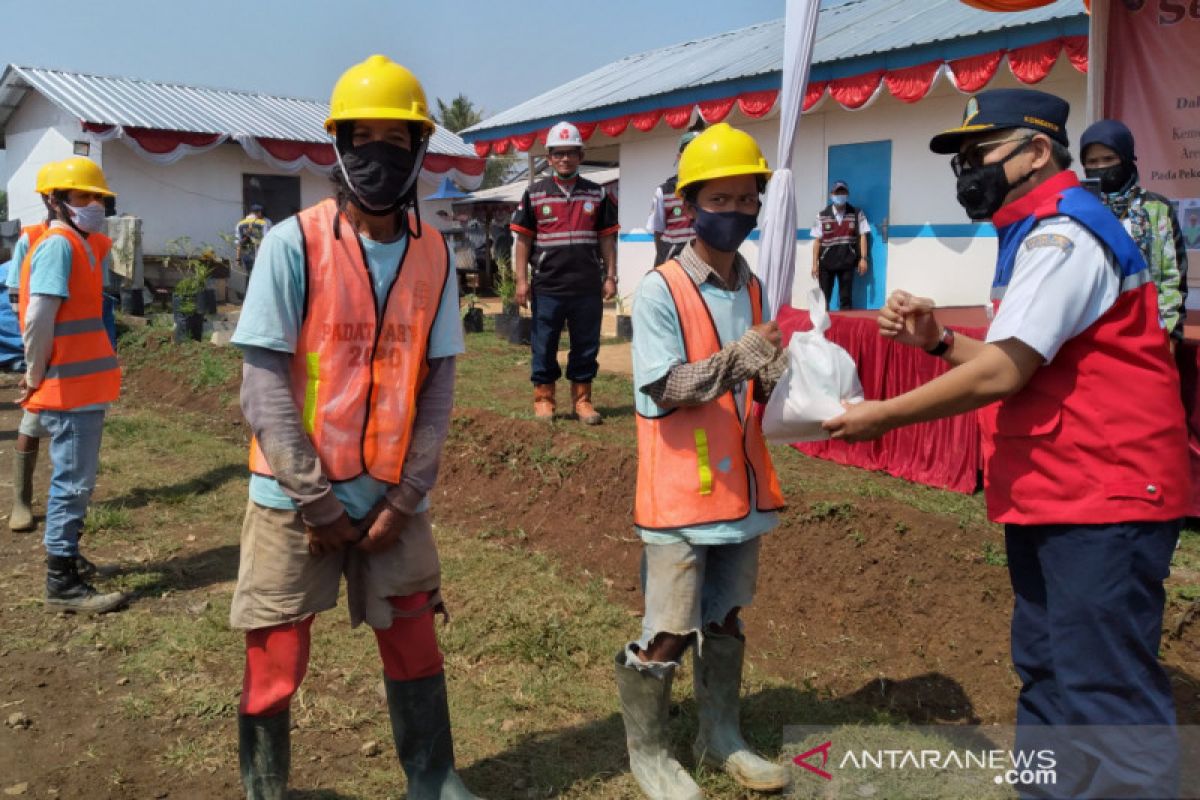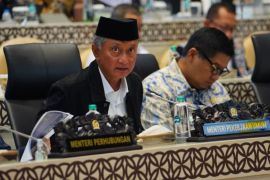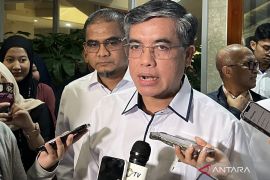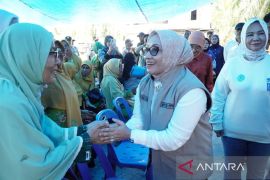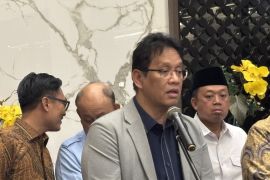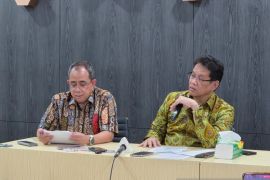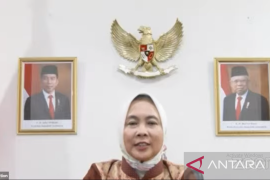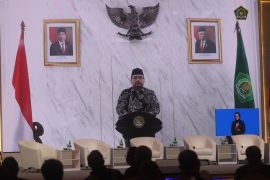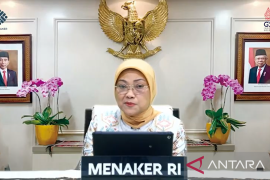Currently, a railway line spanning 26.7 kilometers from Bogor to Cicurug is under construction. It is expected to be completed in August 2021Bogor, W Java (ANTARA) - The Transportation Ministry has recruited at least 300 local people to support the Bogor-Sukabumi double-track railway construction project, the ministry's top official revealed in a statement that ANTARA received here on Sunday.
"Currently, a railway line spanning 26.7 kilometers from Bogor to Cicurug is under construction. It is expected to be completed in August 2021," Director for Railway Facilities at the Indonesian Transportation Ministry Heru Wisnu Wibowo said.
Employing the local residents in the Bogor-Sukabumi double-track railway construction project was part of the ministry's commitment to implementing the government's labor-intensive program, he said.
The casual workers are averagely employed for six months, said Wibowo who visited Cigombong Subdistrict's area in Bogor District on Saturday to observe the construction process of this Bogor-Sukabumi double-track railway project.
The ministry employs skilled and casual workers in which the later is recruited from those residing in the areas along and around the railway construction project to enable them to maintain their purchasing power amid the ongoing COVID-19 pandemic.
The Indonesian government has intensified manpower-intensive infrastructure projects in different parts of Indonesia to offer employment to members of the low-income community to maintain their purchasing power amid the ongoing COVID-19 pandemic.
This labor-intensive program is not merely carried out by the Transportation Ministry but also by the Public Works and Housing Ministry to boost the economic growth and distribute funds to villages and rural areas.
To this end, the Public Works and Housing Ministry, for instance, expedites the realization of this year's labor-intensive projects, financed in cash, in 34 provinces across Indonesia.
With a total budget of Rp10 trillion, the projects cover seven programs, including the Irrigation System Accelerated Program (P3-TGAI), Socio-Economic Regional Infrastructure Development Program (PISEW), and Reduced, Reused, and Recycled Waste Management Sites (TPS3R).
Coronavirus infections initially surfaced in the Chinese city of Wuhan at the end of 2019, while the Indonesian government officially announced the country's first confirmed cases on March 2, 2020.
To tackle the COVID-19 pandemic that has led to an economic contraction of 5.32 percent in the second quarter of this year, the Indonesian government is making all-out efforts.
Besides launching a labour-intensive program to assist those severely suffering the tremendous economic impacts of the coronavirus outbreak, the government also supports the development of a vaccine to combat the virus.
Currently, in addition to the Sinovac COVID-19 vaccine, Indonesian scientists are working on a vaccine named after the country's national flag, Merah Putih (Red and White).
Discovering a COVID-19 vaccine by early 2021 may help Indonesia's economy to recover at the latest by mid-2021, Iman Sugema, a senior economist with the Institute for Development of Economics and Finance (Indef), stated.
"Economic recovery really relies on how immediate the COVID-19 vaccine is discovered. If it can be achieved on time, Indonesia's economy will rebound in mid-2021," Sugema has forecast.
Related news: BI provides Rp662.1-trillion liquidity boost for banking system
Related news: Focusing on distributing social assistance funds: PEN task force
Translator: Riza H, Rahmad Nasution
Editor: Fardah Assegaf
Copyright © ANTARA 2020
